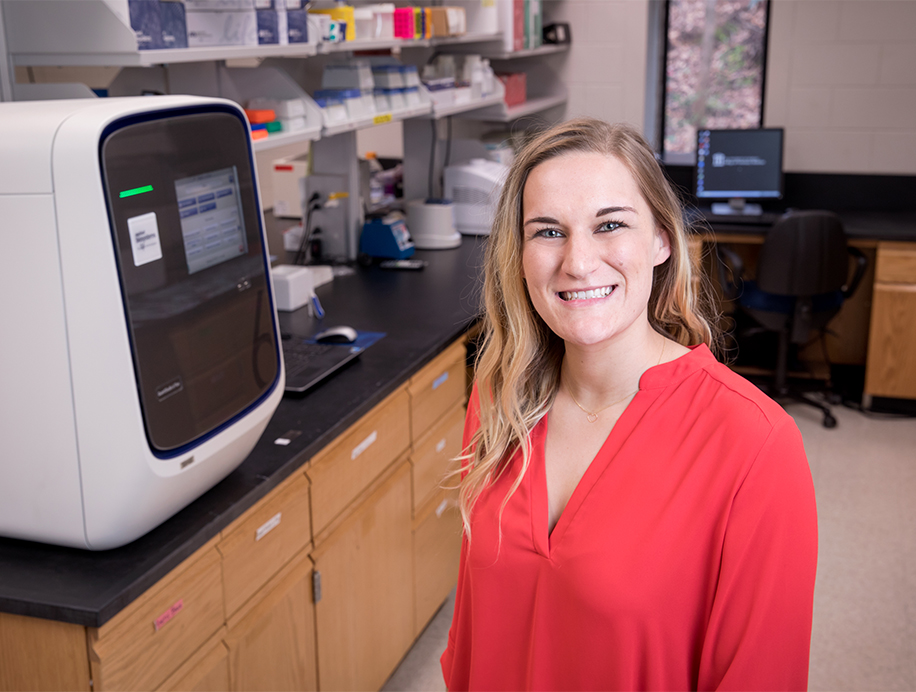
Sadie Nennig, PhD candidate, Neuroscience
Sadie Nennig, a doctoral candidate in the Interdisciplinary Neuroscience Graduate Program within the Biomedical and Health Sciences Institute, studies the relationship between social stress, alcohol-related behaviors, and the neuroimmune system.
Under the direction of Dr. Jesse Schank in the Department of Physiology and Pharmacology within UGA’s College of Veterinary Medicine, Nennig’s research aims to investigate and identify potential targets for future therapeutics for individuals displaying both alcoholism and depression.
Her interest in addiction research was sparked when Nennig majored in Neuroscience and Behavioral Biology at Emory University and took a course on drugs of abuse. Working in an addiction neuroscience lab at Marquette University over one of the summers during college further confirmed her interests in this field of research.
“Through those experiences,” says Nennig, “I knew that I wanted to study addiction during my Ph.D. and applied to programs that had strong addiction research groups.”
Nennig was admitted through UGA’s Integrated Life Sciences (ILS) program and joined the Interdisciplinary Neuroscience Graduate Program and Dr. Jesse Schank’s lab after a semester in ILS. Her graduate research focuses on the “chicken-or-the-egg” type relationship between alcoholism and depression. She is studying how a history of chronic stress impacts later alcohol use, and vice versa, how a history of alcohol exposure impacts stress responsivity.
Understanding the relationship between these disorders will allow for the development of more effective future therapeutics in individuals displaying both alcoholism and depression. “This is extremely important as very commonly, patients diagnosed with alcoholism also meet diagnostic criteria for other psychiatric conditions such as depression and anxiety,” Nennig explains.
She hopes that, by focusing on specific subpopulations of alcoholics (determined by additional diagnoses such as depression) her research may lead to substantially improved therapeutics to treat not just one, but both of these debilitating disorders.
With her research, Nennig hopes to influence the way psychiatric disorders are both investigated in the lab and treated in the clinic.
“I believe there is a great potential in studying co-occurring disorders to identify potential targets for new treatments.”
“We are complex individuals, so we need to think of new treatment strategies with the same level of complexity. Alcoholism is not a one-size-fits-all disorder, and future treatments must reflect this.”
After graduation this December, Nennig plans to continue her training through a postdoctoral position at Northwestern University’s Feinberg School of Medicine in Chicago, IL. In the future, she is confident that she will be involved in the development and treatment of psychiatric disorders in some capacity.
